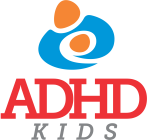 ADHD – Attention Deficit Hyperactivity Disorder – usually brings with it a lot of frustration and blame. It can be difficult to get a diagnosis for your child and this can result in serious emotional and mental scars, both for your child and the wider family. When managed well, ADHD can be a gift, but poorly managed ADHD can leave a trail of victims in its wake.
ADHD – Attention Deficit Hyperactivity Disorder – usually brings with it a lot of frustration and blame. It can be difficult to get a diagnosis for your child and this can result in serious emotional and mental scars, both for your child and the wider family. When managed well, ADHD can be a gift, but poorly managed ADHD can leave a trail of victims in its wake.
The child with ADHD is clearly the first victim. Though ADHD kids have a strong desire to behave well, their actions can be impulsive, and this impulsivity is often punished. As a result, these children often develop very low self-esteem. This is even more the case when parents and teachers are either not aware of or do not accept that the child has ADHD. Once the child has been scolded or punished for their impulsive actions, they can feel they will never be able to meet others’ expectations of them.
The next victims of ADHD are the parents, who often start doubting their parenting abilities and can become incredibly frustrated. Parents are sometimes ridiculed by family members, teachers and other acquaintances, who don’t understand what’s going on and just think lack of discipline is the issue. Parents often start blaming each other for being excessively lenient or harsh while dealing with their child and the disagreements and arguments that result from this may put considerable strain on their marriage and relationship.
Though not apparent at first glance, siblings of the child with ADHD are the next victims after the child and the parents, because they can also suffer with anxiety and frustration. As the ADHD kid is often given more attention by everyone – even if it is negative attention – brothers and sisters can develop jealousy towards the child with ADHD. Children with ADHD can be aggressive and it is often the siblings who suffer the results of outbursts. And siblings are sometimes categorised in social environments and schools because of the behaviour of their brother/ sister. This can all have a negative effect.
It might surprise you to know that other relatives – cousins, uncles, aunts, grandparents etc. – can also be affected by having a child with ADHD in the family. Depending on how close the family is, outbursts, meltdowns and discipline-related issues needing to be dealt with again and again can cause rifts in relationships.
So what’s the solution to maintaining a happy family despite your child’s ADHD? It’s all about working together. Be as open and honest with family members about your child’s condition and challenges. Make sure everyone involved with caring for your child understands what acceptable behaviour looks like and what the consequences will be for unacceptable behaviour. And work together to provide consistent boundaries, because consistency is vital for kids with ADHD. You may find keeping records in an ADHD parenting journal makes this an easier task.

